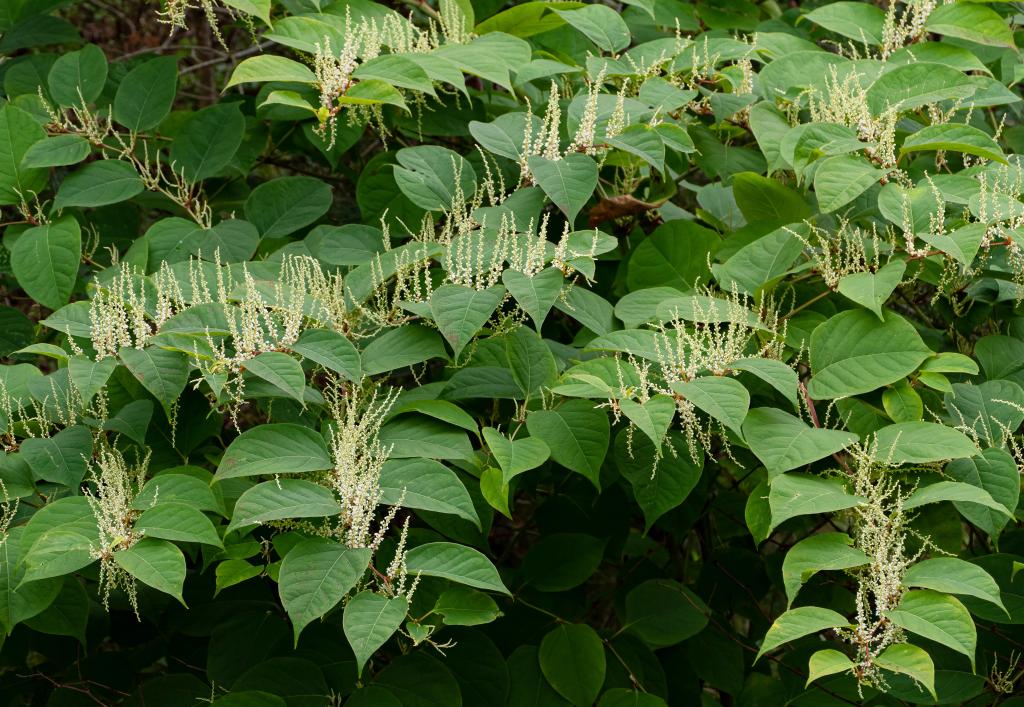
The mere mention of Japanese Knotweed is enough to strike fear into the hearts of property owners throughout the UK. First brought to these shores by a plant enthusiast in 1850, in its native North-eastern Asia the plant is kept under control naturally by competing flora, volcanic ash and by animals further up the food chain. Unhindered by any of these in the UK – apparently the wildlife here don’t like it – it quickly becomes overgrown and is strong enough to damage foundations, buildings and infrastructure, and it is very easy to spread through direct growth and contaminated soil. There are even reports of a hybrid – ‘Bohemian Knotweed’ – which experts say has the potential to be even more destructive and which highlights the adaptability of the original plant.
In the recent case of Downing v Henderson [2023], the Vendor – Mr Henderson (who had selected ‘no’ as his answer as to whether Japanese Knotweed was present on the property on the TA6 form) was sued by the Purchaser – Mr Downing, for misrepresentation during the sale of a property when it became apparent that there was Japanese Knotweed on the premises. Mr Henderson’s argument that he was not aware of the Japanese Knotweed’s presence was rebutted by the Judge when evidence was presented to the effect that the plant in question had been up to 6 feet tall and that there was evidence that it had been treated during Mr Henderson’s ownership in an attempt to remove it. Mr Henderson’s total bill from this case was upwards of £200,000 including damages and costs for both sides.
In Williams v Network Rail [2018] a claim was brought against Network rail for Japanese knotweed encroaching onto their neighbour’s property, which caused a significant reduction in value. Network Rail had to pay damages – not under nuisance as the case was originally brought – but due to the fact that the encroaching Japanese Knotweed was held to have affected the claimant’s enjoyment of ‘the amenity and utility of their respective properties’.
So as the law stands, you must-
- Stop Japanese Knotweed spreading
- Be honest and thorough when selling a property and completing a TA6
Various cases and statute govern these fairly simple rules, and the punishment for not adhering to them can be very strict. For example, under the Wildlife and Countryside Act 1981 there is the potential for a £5,000 fine or a prison sentence of 2 years for allowing Japanese Knotweed to spread into the wild.
Despite all of the above, the RICS have recently brought more perspective to their guidelines in light of new studies. You can read more about it here – https://ww3.rics.org/uk/en/journals/property-journal/japanese-knotweed—new-guidance-comes-into-effect.html – but there certainly seems to be less of a feeling of panic in relation to Japanese Knotweed, and more consideration of each individual case. Japanese Knotweed may be present but depending on the circumstances it might just need monitoring rather than immediate work.
If you suspect that a property you own, have bought, or that you intend to sell, has knotweed, or if you are worried about knotweed spreading to your property from another site, then don’t delay in getting in touch with LFBB. We will be able to advise, put you in touch with recommended experts and guide you to a resolution.